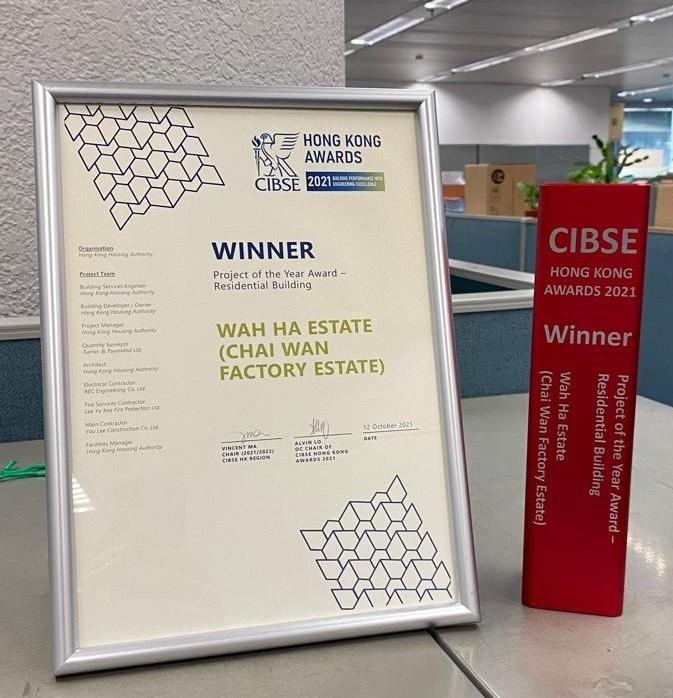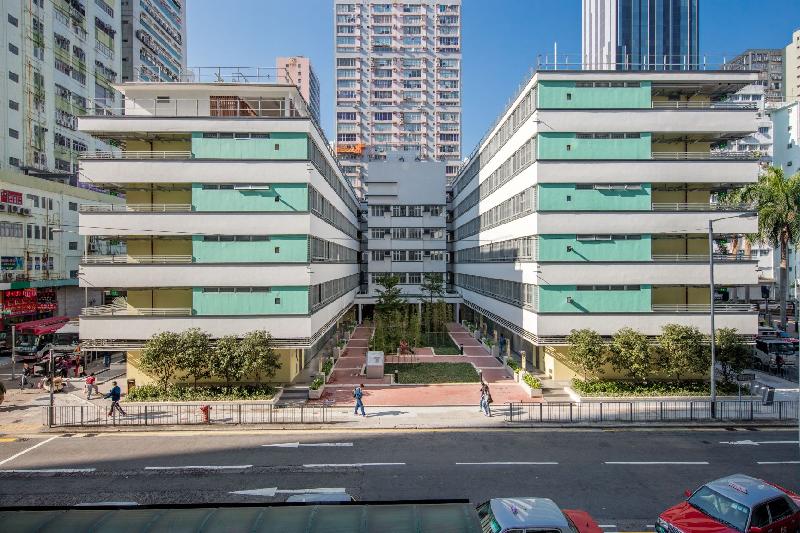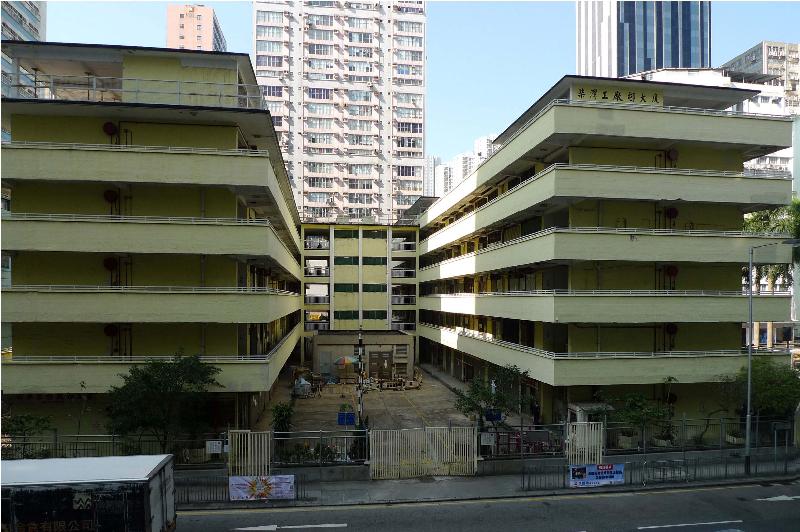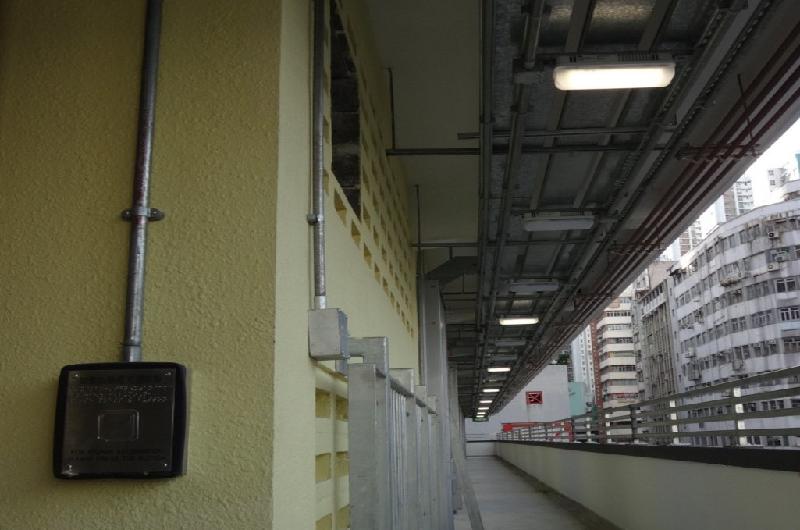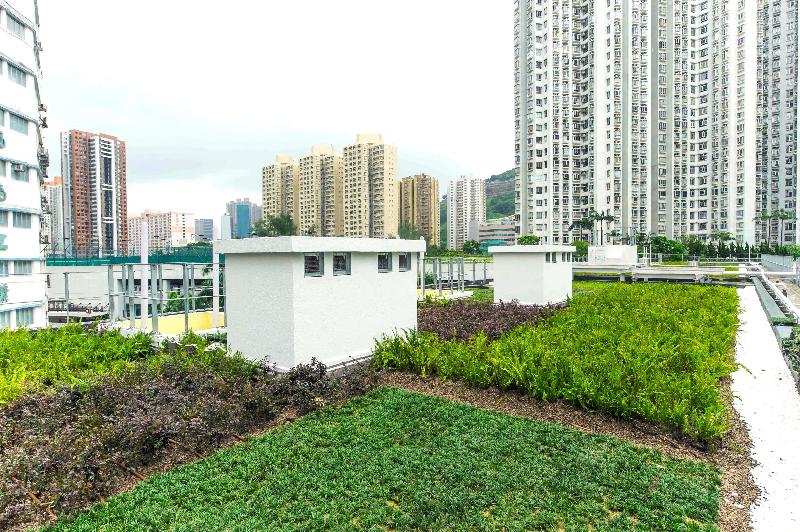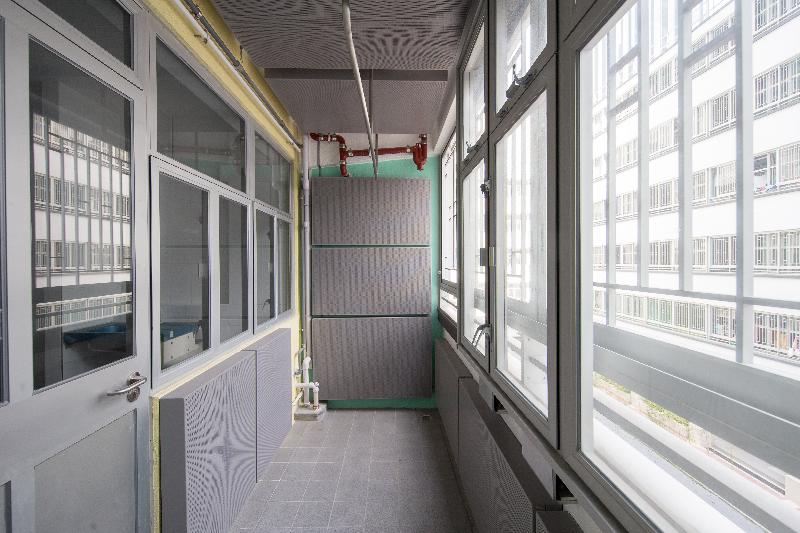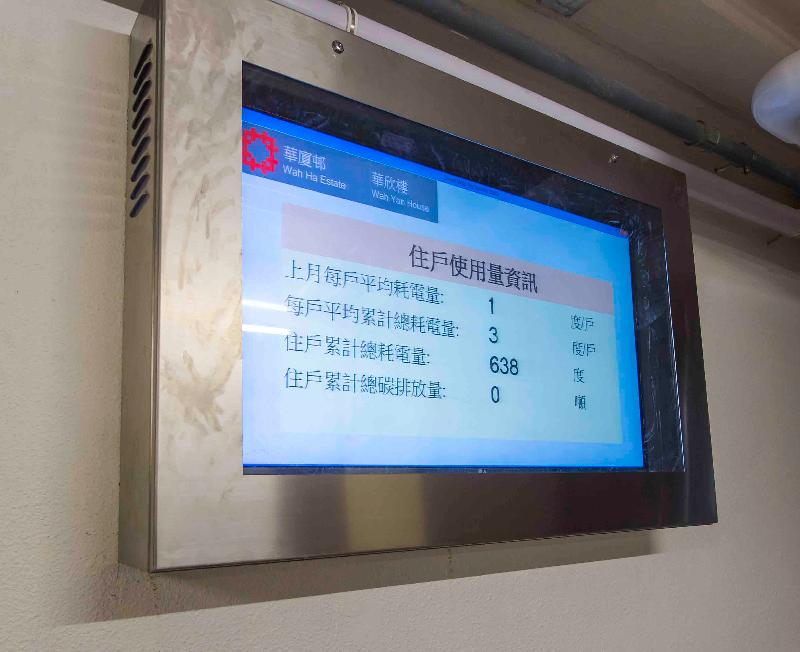The following is issued on behalf of the Hong Kong Housing Authority:
In recognition of its demonstrated engineering excellence, Wah Ha Estate of the Hong Kong Housing Authority (HA) was granted the Project of the Year Award – Residential Building (2021) by the Chartered Institution of Building Services Engineers Hong Kong Region.
Wah Ha Estate was an extremely fast-tracked project in which the HA project team successfully converted the only remaining match box factory in Hong Kong to a sustainable public rental housing block in 2016, providing homes to 187 families after overcoming various site constraints.
"The competition focuses on actual measured performance outcomes, and not just design intent or performance specifications. This award recognises the HA's design, construction, installation, commissioning and operation of a low energy building," the Chief Building Services Engineer of the Housing Department, Mr Henry Chang, said today (November 17).
The Government announced the conversion in 2012 with the aim of increasing the short term public housing supply and to preserve the only remaining H-shaped factory in Hong Kong.
"The biggest challenge for the project team was to provide affordable housing with a sustainable living environment from a Grade II historic building located within an industrial area, which is subject to considerable noise from nearby industrial buildings and transportation facilities, and at the same time maximise the development potential of the site as well as to conserve the historical value of the 55-year-old Chai Wan Factory Estate during the conversion," said Mr Chang.
The building design and the building services systems of Wah Ha Estate promote energy savings, address the needs of residents, and ensure that the building achieves the designed green targets by adopting various designs, some of which are unique in the HA's projects.
Lighting levels in lift lobbies, corridors and staircases in Wah Ha Estate can be enhanced by pressing either a manual button integrated with the door phone handset in a domestic flat or the manual switch at the lift lobby to suit residents' needs. This can minimise energy consumption while meeting the requirement for barrier-free access.
"Apart from adopting daylight as much as possible and lighting sensor controls, energy efficient LED lighting was also installed in the estate. This is the first project of the HA to roll out LED lighting in public housing estates," Mr Chang said.
High efficient gearless lifts were installed and an uninterrupted lift service can be maintained through a specially designed circuit arrangement in case of a temporary suspension of electricity during statutory periodic inspections of the electricity supply system.
A rainwater harvesting system (RWHS) was adopted to collect rainwater from the green roof of the building block, which can then be filtered and sterilised for irrigation purposes. The RWHS helps reduce dependence on the water supply and ease rainwater drainage.
To mitigate the noise impact from railway and road traffic, the project team has incorporated a special acoustic balcony for flats in the vicinity of Chai Wan MTR Station. Habitable areas of those flats are also strategically oriented away from the noise sources of the MTR station and roads.
"To raise the awareness of residents on conservation of resources, electricity, water and gas consumption information is displayed on a 49-inch TV display panel at the lift lobby at the entrance of the housing block," said Mr Chang.
The HA engaged an independent consultant to conduct a resident survey about a year after the project's completion to gauge residents' satisfaction levels as well as gather their opinions. The survey results in mid-2018 indicated a high level of satisfaction.
Follow this news feed: East Asia






